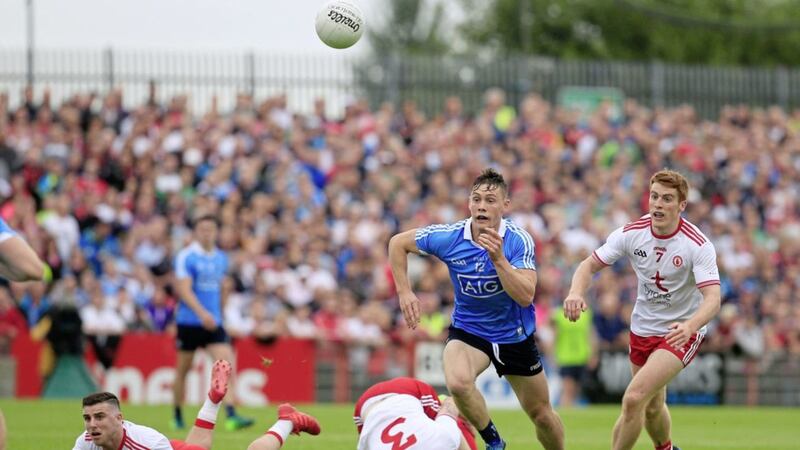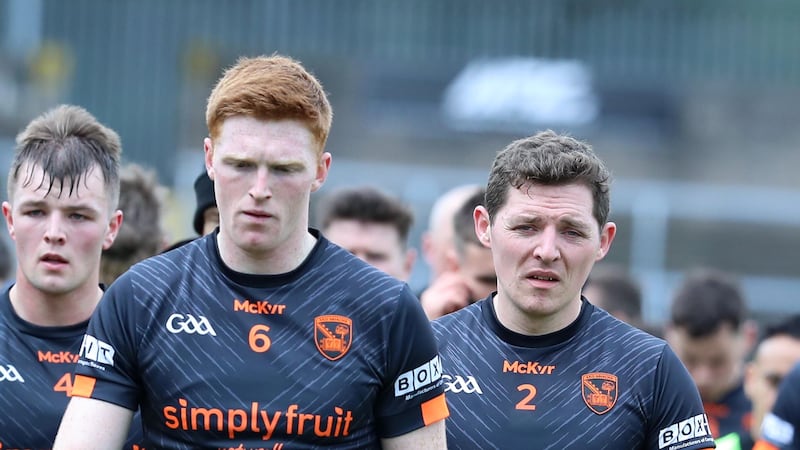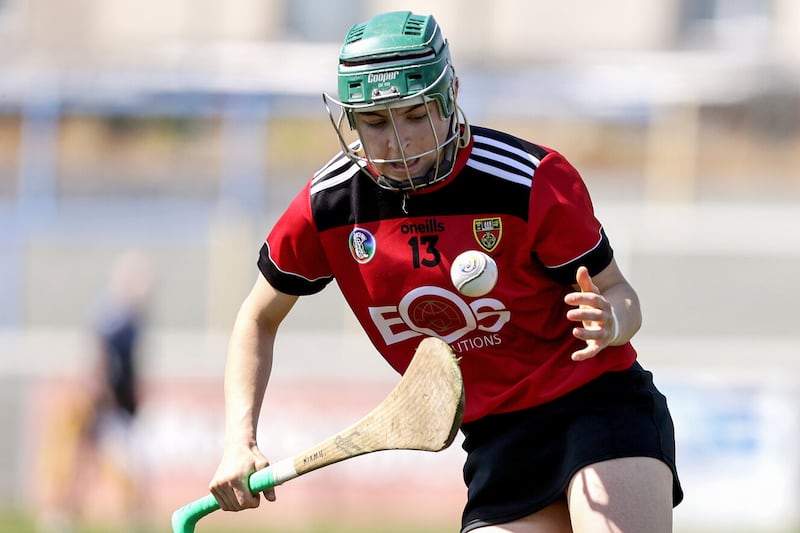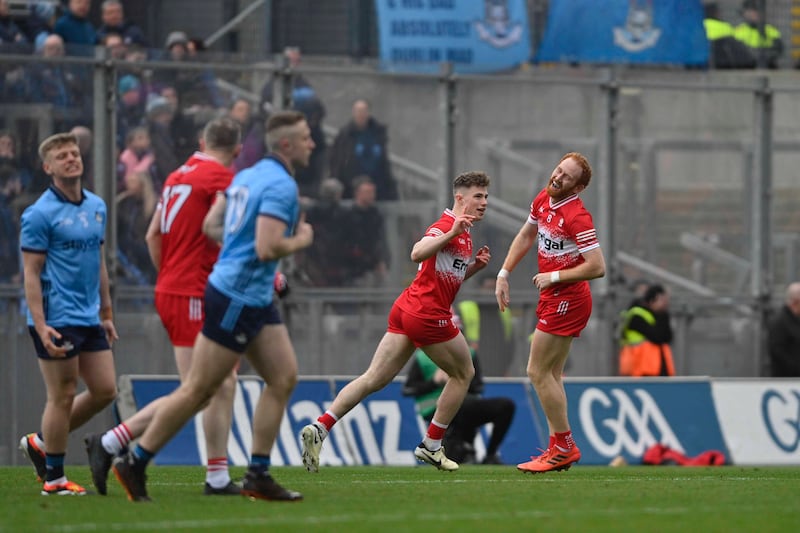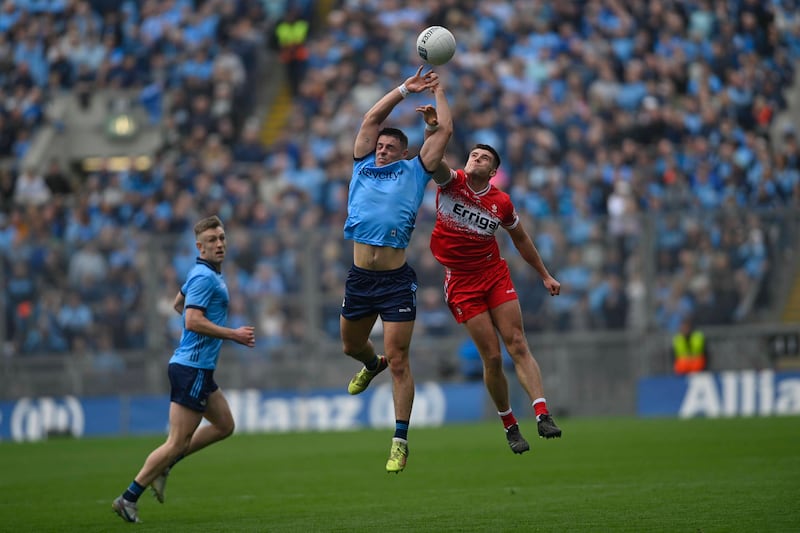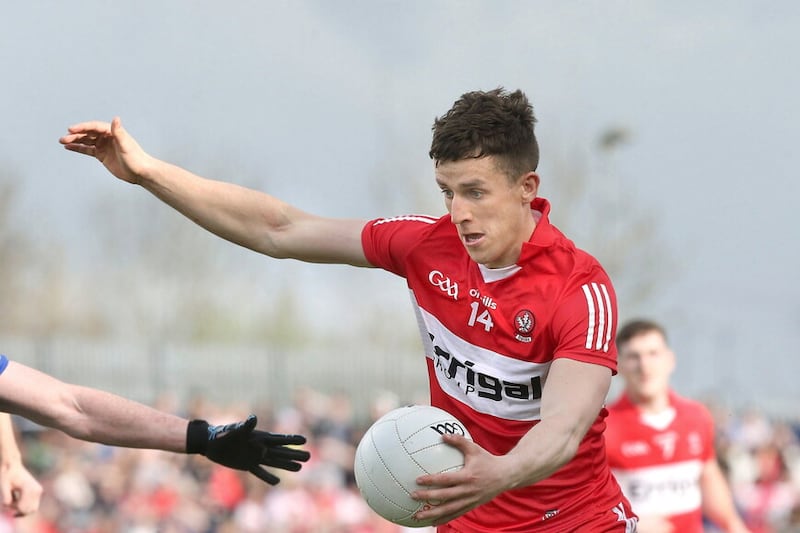IT’S a little-known fact* that before the ‘back pass rule’ was introduced into soccer in 1992 Liverpool Football Club was the only team allowed to propel the ball backwards to their own goalkeeper.
Even more amazingly, no footage exists of all (or indeed any) of the many trophy-winning goals that resulted from the LFC ‘keeper collecting a back pass and then booting the ball straight into the opposition net. Again.
Stranger still, there were no complaints from rival clubs about this tremendous advantage allowed to only one team, and one that was already brilliantly coached, expensively assembled, and full of a blend of young and experienced, ambitious and talented players.
At least there has been some recent outcry that Dublin – who would also fit the description in the previous paragraph – have also been given a boost under the rules of Gaelic football.
Jim Gavin’s men are able to pass the ball around when they are comfortably ahead late in a game, killing time and holding on to their hard-earned lead by a dastardly combination of skill and fitness. It’s quite disgusting how they can do this and yet no other team gets the opportunity to try out that tactic.
Still, at least the Dubs have been called out on their dirty tricks, not so much in their win away to Tyrone but during the latter stages of their opening victory of the All-Ireland quarter-finals series at home to Donegal when they blatantly passed the ball between a series of blue shirts without giving it to their opponents.
Sarcasm aside, the reason Dublin couldn’t play quite so much keep ball against the Red Hands late on is that Tyrone pushed up on them – and on Stephen Cluxton’s kick-outs in particular - in those closing stages.
There is nothing wrong with playing a possession game – it’s certainly not against the rules, nor even against ‘the spirit of the game’, as some have ridiculously suggested.
What is genuinely damaging to the game is the real problem of time-wasting, of teams NOT playing with the ball.
Apparently the ball was only in play on average for less than half of the supposed 70 minutes during the 2011 Ulster SFC – and in fact (a real, actual fact) the ball was active for far less than half of the almost 80 minutes that most matches lasted due to stoppage time.
That figure of less than 35 minutes increased to 45 for the 2016 Ulster Final, ironically between two counties who would be seen by many as among the most cynical of the modern age, Donegal and Tyrone.
Perhaps that was a consequence of some concern expressed about the last few minutes of the 2015 All-Ireland U21 Football Final – won by, er, Tyrone. In early 2016 GAA referees were instructed to add around 20 seconds per substitution so that teams in the lead couldn’t simply run down the clock by not running on or off the pitch when substitutions were being made.
Yet the blight of time-wasting won’t be removed until a much stricter approach is taken.
Currently the GAA guidance for referees is as follows:
• Playing time shall be extended by the referee for incidental or deliberate delays, by stopping the watch for each such delay.
• Time shall be extended to allow a free kick/puck awarded before time had expired to be taken.
The examples of incidental delays are: • Play stopped due to injury • Melee • Delay due to dealing with a Disciplinary issue • Consultation with other Match Officials • Time taken for the making of substitutions (20 secs approx. per sub) • Delay due to Hawkeye being called for in games in Páirc an Chrócaigh and Semple Stadium.
Yet in the `deliberate delays’ category there are only two examples given: • Excessive time taken in making substitutions • A player with a blood injury refusing to leave the field when asked to do so.
Are those really the only deliberate delays the GAA see in matches?
One ‘tactic’ in recent years, witnessed again at Clones on Sunday when Monaghan hosted Kerry, is that of balls being thrown onto the pitch prior to kick-outs, either to delay or to disrupt (or both).
If it’s a kick-out for the team leading, their ‘keeper invariably shows serious concern about the presence of this other ball and does not take his kick-out until it is removed.
Alternatively, the trailing team’s ‘keeper can be distracted by a ball flying across his line of vision just as he is taking his run-up.
At least ref Maurice Deegan ignored some of those instances late in the game as Monaghan tried, but failed to hold on to their lead.
There are other penalties, of course, for some delaying tactics:
To delay taking a free, sideline or kick/puck-out – Throw-in
To delay an opponent taking a free or side-line – move the free up by 13m.
Yet so much time is still wasted in those instances, particularly with so many goalkeepers coming up-field to take frees or 45s nowadays.
And as with so many aspects of the GAA’s rules, what precisely constitutes a ‘delay’? Five seconds? Ten seconds? 15 seconds?
There should be a set time limit for the taking of dead ball kicks, something similar to soccer’s ‘six second rule’ for goal kicks, although obviously more time should be allowed in Gaelic games to take frees/ 45s/ 65s.
Better still, though, simply stop the clock in those situations.
Have someone in the stands who can do that, and also alert the ref to another ball on the pitch and be wise to other time-wasting tactics.
A minimum of 25 minutes of play should be set for each half and teams will soon realise that the only time they are wasting is their own; 50 minutes will be played, however long that takes.
My only concern about that figure is that it might make the game even more about fitness and running power rather than skill - but then again it might persuade more coaches to preach the old adage about ‘letting the ball do the work’ and bring back more kicking.
You’ll not need a watch to time how long it takes for the first media moan directed at time-wasters who push us closer to deadlines,
Supporters too won’t welcome missing valuable drinking time / or being kept later before getting home
Time-wasting’s time would soon be up.
* Only a fact in the sense that Trumpians or Brexiteers (and some Manchester United fans) believe something to be true.

